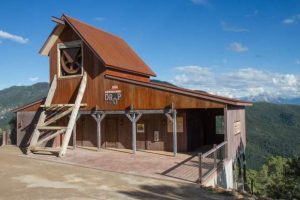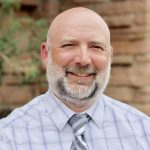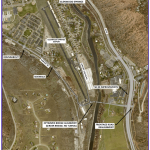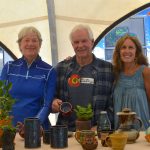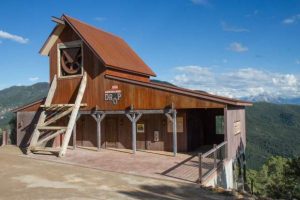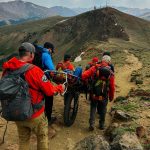Beatriz Soto represents Garfield County at Latino Advocacy Week
Virtual programming amplifies voices of Latino leaders fighting climate change

A majority of Latino voters feel called to protect the planet and the majority are in favor of enacting legislation to hinder the effects of climate change, a recent survey reports.
The groups Environmental Defense Action Fund and Latino Decisions conducted a survey in November 2020 showing that 81% of Latinos voted for long-term investments in wind and solar energy, and 84% agreed on the importance for the U.S. to pursue long-term investments in green infrastructure. Although the Latino community shows enthusiastic support for preserving the planet, Beatriz Soto said they’re often left out of conversations on how to counteract the factors harming the environment.
“So I would love to see those investments in our community and making sure our voices are there, and that they’re never moving forward without us. It’s a missed opportunity and historically these groups and these movements have been white, extremely white and they have to deal with their history of excluding such a large part of our community,” Soto, Director of Defiende Nuestra Tierra said. “And I’m hoping at a local level we can start to change that.”
Latino Advocacy Week (LAW) began Monday, March 15 and features free programming and webinars open to all individuals across the country. The Latino Advocacy Week website says its goal is to “Build capacity and familiarity among Latinos to advocate for themselves, their families, and their community.”
The push for this unification is to tap into the support Latino communities have to offer, particularly when it comes to advocating for the planet. Mariana Del Valle Prieto Cervantes, a Clean Waters and Ocean Advocate for GreenLatinos, said in her presentation during the kickoff event Monday that Latinos care deeply about the health of the country’s oceans and lands, but also are more likely to live near polluted water.

“Many of our low income communities, our communities of color … across the country are faced with devastating water quality conditions. … In 2012 the Environmental Protection Agency estimated that we needed to invest $271 billion in maintaining and repairing our waste water infrastructure over the next 20 years just to meet the current environmental and health standards,” Del Valle Prieto said.
LAW is designed to bring together Latino leaders from across the country to amplify their voices, but it is important for people who don’t identify as Latino to tune into this year’s virtual events, since the climate issues they’re discussing affect everyone.
“It’s free and open to anyone who wants to participate. And you don’t only have to be Latino, anybody hopefully would participate. … This can be a unifying message, it can be a unifying effort, and I think based on where things are today you know more than ever we need to come together as a community and the community resiliency is going to be essential in the face of climate change. It’s going to be essential for all of us to work together,” Soto said.
Salome Garcia, Policy and Campaigns Manager for the CLEO institute also presented during the kickoff event and said it doesn’t matter what one’s top priority or concern is- it will always link back to the climate crisis.
“Whether your friend’s … No. 1 issue is job security, food insecurity, economic growth, that is a climate change issue as well. I think that changing the narrative of climate change and environmental issues to make it fit into everybody’s priorities is one of the most powerful things we can do in the movement,” Garcia said.
Soto broke this idea down with the example of how the Western Slope has lost a month of winter over the past decade. Living in Garfield County, many aspects of the community’s economic livelihood depend on snow, and when the ski or winter sports season is shortened, job opportunities and availability are also impacted.
“If you’re losing a month of winter you’re losing a month of your economic viability. Now if you can connect that to climate, then you’ll be like ‘oh, I need to take action on climate,’ because the fact that we’re getting warmer winters, less snow and less tourism is affecting my way of life. And my ability to support my family and my ability to pay my bills,” Soto said.
The longer people wait to join the climate solution the harder it will become, Soto said. By 2050, 30% of the U.S. population will be Latino, and it is unlikely to think the 30×30 plan will work if Latinos continue to be left behind, Soto said.
“I think by protecting 30×30 we’re going to save 75% of the species on our planet.If we don’t protect that, we’re risking losing more. So we’re still losing 25% and we’re willing to take that risk, because otherwise we would need to conserve even more. … it’s for human survival at the end of the day because without that biodiversity and healthy ecosystems, our whole civilization with nature is running the risk of collapsing.”
– Learn more about the virtual events for Latino Advocacy Week and how to register here.
– Follow the hashtag #LatinoAdvocacyWeek on social media to see updates from other participants in the week’s events from across the country.

Support Local Journalism

Support Local Journalism
Readers around Glenwood Springs and Garfield County make the Post Independent’s work possible. Your financial contribution supports our efforts to deliver quality, locally relevant journalism.
Now more than ever, your support is critical to help us keep our community informed about the evolving coronavirus pandemic and the impact it is having locally. Every contribution, however large or small, will make a difference.
Each donation will be used exclusively for the development and creation of increased news coverage.
